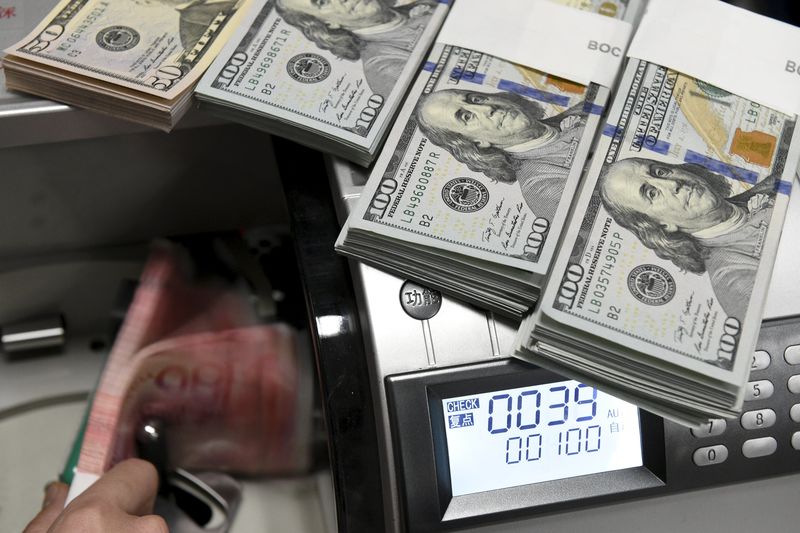Investing.com - The dollar was quoted slightly weaker in early Asia on Tuesday with Australia's central bank set for an interest rate decision and investors cautious ahead of a meeting this week between U.S. President Donald Trump and Chinese President Xi Jinping in Florida expected to be contentious on trade.
The U.S. dollar index, which measures the greenback’s strength against a trade-weighted basket of six major currencies, was last quoted at 100.36.
The NZIER business confidence survey for the first quarter showed a dip to 17% from 28%, while the New Zealand think tank said capacity utilization rose to 93.6% from 92.7%. NZD/USD traded at 0.7014, up 0.03%
Ahead, Australia reports trade data for February with a trade balance surplus of A$1.80 billion seen. Later in the day, the Reserve Bank of Australia will review monetary policy and is expected to stay on hold at a record low 1.50% for the benchmark rate. AUD/USD traded down 0.03% to 0.7604, while USD/JPY changed hands at 110.85, down 0.04%.
Overnight, the dollar remained slightly above break-even against a basket of major currencies on Monday, as investors mulled over the release of mixed economic data. As well, the Bank of Japan will report core CPI with a 0.2% gain expected year-on-year.
The dollar retreated from session highs, as March construction spending fell below economists’ forecasts while economic activity in the manufacturing sector slowed less than expected.
The Institute of Supply Management (ISM) Manufacturing Purchasing Managers Index (PMI) hit 57.2 in March, a 0.5% decrease from the February reading of 57.7 but slightly above economists’ forecasts of 57.0.
Meanwhile, the Commerce Department said, February U.S. construction spending increased 0.8% to its highest level in more than ten years but it missed analysts’ expectations of 1% rise.
Elsewhere, the pound lost some of its resilience against the dollar, as GBP/USD tumbled to a session low of $1.2466, after UK manufacturing activity slowed in March. Financial data company Markit said its purchasing managers' index (PMI) slipped to 54.2 from a downwardly revised 54.5 in February.
